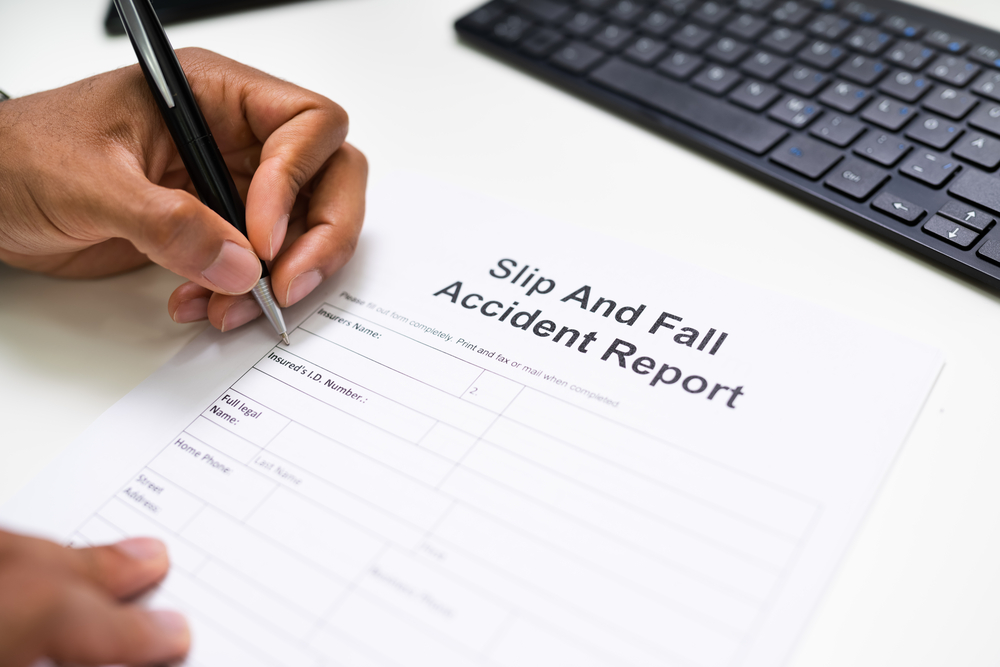 A driver is liable if their behavior on the road injures you. A dog owner is responsible if their dog bites you. But is a business liable if you’re injured in their store while shopping? Injuries in businesses are not uncommon, with slip-and-fall accidents being some of the most common ones reported. And while many slips and falls are minor, others can result in a serious injury. If you’re injured in a store, could that business be held liable? Keep reading to learn more.
A driver is liable if their behavior on the road injures you. A dog owner is responsible if their dog bites you. But is a business liable if you’re injured in their store while shopping? Injuries in businesses are not uncommon, with slip-and-fall accidents being some of the most common ones reported. And while many slips and falls are minor, others can result in a serious injury. If you’re injured in a store, could that business be held liable? Keep reading to learn more.
Establishing Retail Store Negligence
The short answer to the question above is yes, a business can be held liable for an injury that occurs on their premises. The key to holding them liable is effectively proving retail store negligence. All business owners have a duty to maintain their premises and eliminate any issues that could pose a danger to their customers. Proving negligence involves providing evidence that they business failed to carry out that duty in some way, and their failure resulted in your injury.
When it comes to establishing negligence, the burden of proof lies with you, the injured party. This means that you’ll need to gather as much evidence as possible regarding your injury, to prove beyond a reasonable doubt that the business breached their duty of care, and you were injured as a result of that breach of duty. Here are some important steps to follow to gather that essential evidence.
File a Timely Incident Report
Any time you fall and injure yourself on a commercial property—no matter how minor that injury may seem—you should always speak with a store manager and ask for them to file an incident report. Even if you feel fine after the accident, sometimes an injury can worsen with time or an injury won’t fully present itself until several days after the incident. Always file a report as soon as possible, before leaving the store.
You should try to provide as many details about the incident as you possibly can, but it’s important that you not inadvertently incriminate yourself while doing so. For example, if you slip on a wet floor, you shouldn’t theorize about why you didn’t notice it was what. Saying things like, “I was on the phone” or “I was looking at my shopping list” can be used to shift liability away from the business and onto you. Stick to the facts regarding the conditions that led to your accident. In this case, something as simple as, “There was spilled water on Aisle 6, and no Wet Floor sign. When I stepped in the puddle, I slipped and fell on my back.”
After detailing the incident, make sure you read the report completely before you sign it. You should also make sure there is no liability release anywhere on the form, as this would prevent you from holding the business liable for your injuries, and you would be unable to pursue compensation in the future. If you’re ever in doubt, don’t sign it. Request a copy of the report for your own records and, if possible, ask for the store’s insurance information.
Get Witness Testimonies
If anyone saw your injury occur, it’s a good idea to get testimonies from these individuals. You can ask them to write down what they witnessed, then have them sign and date it, or you can ask for their contact information so they can provide testimony later, if needed. It’s best to receive testimonies from bystanders, rather than any friends or family members who might have been with you at the time the injury occurred; store employees are also not great witnesses. These parties could have ulterior motives that may skew their testimonies one way or another.
Photograph the Scene
Most in-store injuries are caused by temporary conditions on the premises: an icy sidewalk, slick floor, precariously stacked boxes, and so on. By the time your injury claim moves forward, it’s highly likely that the conditions that caused your injury will have been repaired or removed. It’s very beneficial to have photographic evidence of the scene, so you can clearly demonstrate the circumstances that led to your injury.
For example, let’s say you tripped and fell on torn, uneven segment of carpeting in a store. When the store’s insurance company follows up on your case, the flooring has been repaired, and there’s no evidence that the store was negligent in maintaining their property. This can bring your claim to a full stop, with few options to continue pursuing compensation.
If you were injured while shopping in a store, and you believe the business is liable for your injuries, contact The Harr Law Firm today. We’ll consult with you and help you receive the compensation you deserve.